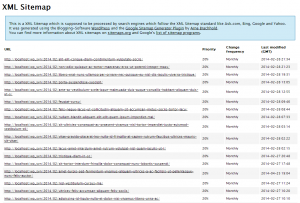Two major retailers are claiming it’s more profitable to run a brick and mortar store than an e-commerce site. The news, coming from Fab.com and Bezar co-founder Bradford Shellhammer and Michael Kors CEO John Idol, is sending shockwaves through the e-commerce community.
The statements, coming out earlier this year, put into question the entire e-commerce model that’s been hailed as the cheaper way to sell products for a few key reasons:
- No rent costs
- Less employees
- Businesses can overcome geographical limitations
- E-commerce is said to be more convenient for customers to shop and compare products
- Open 24/7
But now, Shellhammer and Idol say e-commerce stores are causing more overhead costs with increased shipping prices, product damage during shipping, returns, and marketing. Speaking to Bloomberg.com, Idol says he sees this as a temporary trend but a real problem to tackle, “We think over time that will reverse itself but as you know, when the consumer requires free delivery, free return, wonderful packaging, plus there’s a new trend that people are buying multiple sizes of things to try them at home and then return them, that all is a negative headwinds for us.”
Idol believes e-commerce will become 20 to 30 percent of its business eventually, but that brick and mortar stores are going to be the foundation of the company. Shellhammer on the other hand has a much different view for the future of the e-commerce industry, partly because his business is based solely on e-commerce.

Source: Bloomberg

Source: Bloomberg
In January 2016, Shellhammer’s e-commerce site, Bezar, was consolidated with AHAlife after reports it was going under. While speaking to Deezen magazine, Shellhammer said the move is part of a larger trend in the industry, “Consolidation makes sense. It’s really expensive to run an e-commerce company. It takes a lot of manpower. Consumers are fickle and Amazon could potentially destroy everyone. I think you will likely see more and more consolidation across many categories. That would be my prediction.”
What this news means for e-commerce business owners
When two major retailers say brick and mortar stores are more profitable than running an e-commerce site, it can cause panic — but the news should be taken with a grain of salt.
Shellhammer and Idol are facing two very different problems, even though they have come to the same conclusion. Michael Kors is facing a deficit in their e-commerce business because it’s taken massive investment to get these sites up and running. Michael Kors and other retailers also haven’t found a way to make as much money off of online sales compared to their brick and mortar stores.
Bezar on the other hand is a retailer totally based online, therefore it’s directly competing with other e-commerce sites, and giants like Amazon. Shellhammer also pointed out to Dezeen that along with rising overhead costs in shipping and returns, e-commerce sites are also competing and paying more than ever in advertising as larger companies flood the market, “It costs money to make money and when you’re competing for the same ad channels against guys who have unlimited coffers, it’s really difficult.”
These revelations, although coming from major and influential retailers, isn’t a death sentence for e-commerce. Both Idol and Shellhammer admit these are trends in the market, so it’s important to be aware of them and have a plan for your own business.
It also means you may not ever see these same kinds of problems based on what you sell on your e-commerce site. For example, Michael Kors sees a lot of returns because people buy multiple sizes of clothes and return what doesn’t fit. But an e-commerce site like Bezar, which sells home and design products, might have fewer returns because people can more easily compare these types of products online. On the flipside, an e-commerce site like Bezar might see more product damages during delivery.
Another thing to consider is that your e-commerce business may not face consolidation because you sell something unique, handmade, or a niche product. On top of that, opening a brick and mortar store might run you into a the ground because your customers are from a wide geographical area, or there is no demand in your community.
“Consolidation makes sense. It’s really expensive to run an e-commerce company. It takes a lot of manpower. Consumers are fickle and Amazon could potentially destroy everyone. I think you will likely see more and more consolidation across many categories. That would be my prediction.” -Bradford Shellhammer, Bezar & Fab.com Co-Founder
What these revelations show is that while we may feel like we’ve conquered the web, there’s still a lot of growing, and figuring out to do.
Make your e-commerce site more profitable, for free
E-commerce can uniquely take advantage of all the internet has to offer to expand business in ways that just won’t work for a brick and mortar store. Keep your e-commerce business thriving, and even grow it, by taking advantage of these free profit increasing strategies.
Make your site SEO friendly
If your site isn’t already search engine optimized, you’re missing out on a huge opportunity to grow your customer base. SEO is a way to get organic traffic to your e-commerce businesses through search results on search engines. There are endless amounts of guides out there to help you increase your SEO, so get out there and utilize them!
Fill a niche
Providing a specific product, or line of commodities for customers will automatically make you stand out. Filling a niche in e-commerce goes beyond borders, so people from across the country or even the world will recognize your business. This is an important thing to leverage since it’s harder, if not impossible, for brick and mortar stores.
Display your customer’s reviews alongside the products
One thing you cannot get in a brick and mortar store is customer reviews alongside the products. So let your customers reviews shine alongside what you’re selling. It makes it easier for customers to compare and make an educated decision, which is a huge draw for customers who decide to shop online.
Finding a Solution
While the news of e-commerce stores waning profitability against the traditional brick and mortar comes at a shock, many are pointing out that it’s a reality many retailers have been reluctant to admit. And while this problem may be a current reality for retailers, both Idol and Shellhammer call it a trend, and a problem that’s yet to be totally solved.
But if you’re reading this article and noticing that you’re having some of the same problems as these major retailers, you’re in luck. For one, you’re aware of the trend and now you can plan for the future. And secondly, solutions exist!
Two of the major problems brought up by Shellhammer and Idol were increased shipping prices and product damage during shipping, both of which can actually be solved by a high quality ecommerce fulfillment partner.
Take advantage of social media
Shellhammer talked about increasing advertising costs against some of the giants in the industry, but utilizing social media channels to communicate with customers, and reach out to new ones is totally free.
Build up your social media channels with engaging content, and be adamant about updating them. Staying in contact with customers, controlling your message, and linking back to your e-commerce site daily is a great way to grow your business.
Digital & Social Articles on Business 2 Community(41)








